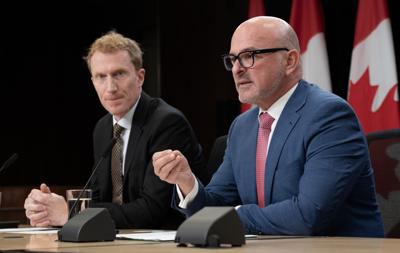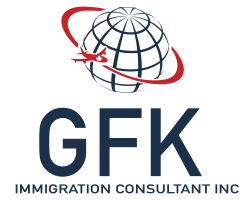
Imagine entering a relationship brimming with promise and the allure of a stable, prosperous future — only to find the rules keep changing. But you only discover the truth of your “situationship” after you’ve already flown across the world, moved in and unpacked.
This is what many migrant workers and international students face in Canada — an immigration system that mimics the unpredictable and toxic whims of a narcissist.
These individuals arrive to Canada, lured by promises of opportunities and the potential for permanent residency sold to them by immigration consultants, policymakers and relatives. Initially, Canada seems welcoming with our talk of diversity and inclusion. However, the reality soon hits. Requirements shift and goalposts move unpredictably — classic manoeuvres of control and manipulation.
Migrant workers and international students learn quickly that their welcome is conditional and precarious. In 2022, international students contributed a massive $37.3 billion to Canada’s economy, or 1.2 per cent of the GDP, through tuition and other expenses. They, along with temporary foreign workers, fill essential jobs in agriculture, construction and care work — sectors Canadians often avoid. Yet, we barely acknowledge their contributions.
In return for their substantial financial and labour investments, we offer them limited rights and unstable pathways to permanence, leaving them vulnerable to exploitation.
Moreover, there is always the looming risk of deportation, a tool the government uses to remind temporary residents of their fragile standing in this new land.
Since January 2024, Canada has enacted several major policy changes affecting temporary residents. These began with the cap on international students, followed by a series of reforms aimed at reducing the number of temporary migrants, altering work hours, and adjusting post-graduation work permit processes.
Each policy change only adds to the uncertainty and stress to these individuals, culminating in widespread protests by international students and temporary migrant workers.
The constant shifts in policy are not just bureaucratic changes; they have severe financial, physical, and mental impacts. The psychological stress the Canadian government is putting them through is contributing to a mental health crisis among this population, especially international students, who are young and away from home for the first time.
The frequent changes make it difficult for many to see a stable future in Canada, leading to reverse migration because they fear it could all disappear with the next policy update. And that moment may have arrived with the latest policy change to manage “sustainable volumes” of temporary migrants, which introduced more caps and restrictions.
These changes further reinforce a system designed to exploit migrants for economic gain while denying them a genuine chance at permanence. It’s a system that views these individuals as disposable — necessary for their economic contribution but not worthy of a secure future.
Canada’s immigration system needs a drastic overhaul. It should start with including migrants in policy consultations. The government claims, “We have listened to Canadians, including our provincial, territorial and municipal partners, and other community leaders” but the temporary residents’ lives who are dramatically altered by these policy changes were not given enough respect to be listened to. We shouldn’t be excluding and effectively silencing those most affected by these policies.
Migrants are not just economic units; they are individuals who bring rich diversity and potential to our communities. They deserve to be treated with dignity and to be offered clear, reliable policies to plan their life — in Canada or back home.
It’s time for Canada to stop the exploitative tactics and start building a fairer immigration system — one that truly values and respects those seeking a better life here.
GFK Immigration
Gboyega Esan RCIC R708591
Phone: +1 (647) 225-0092
#immigration #immigrationnews #news #blognews #canada #Pr #FamilySponsorship #GFKImmigration #ReuniteInCanada #ImmigrationExperts #FamilyFirst #CanadianDream #CanadaPR #CanadaBound #RelocateWithEase #canada #canadaimmigration #immigration #studyincanada #studyabroad #visa #ielts #canadapr #studentvisa #studyvisa
